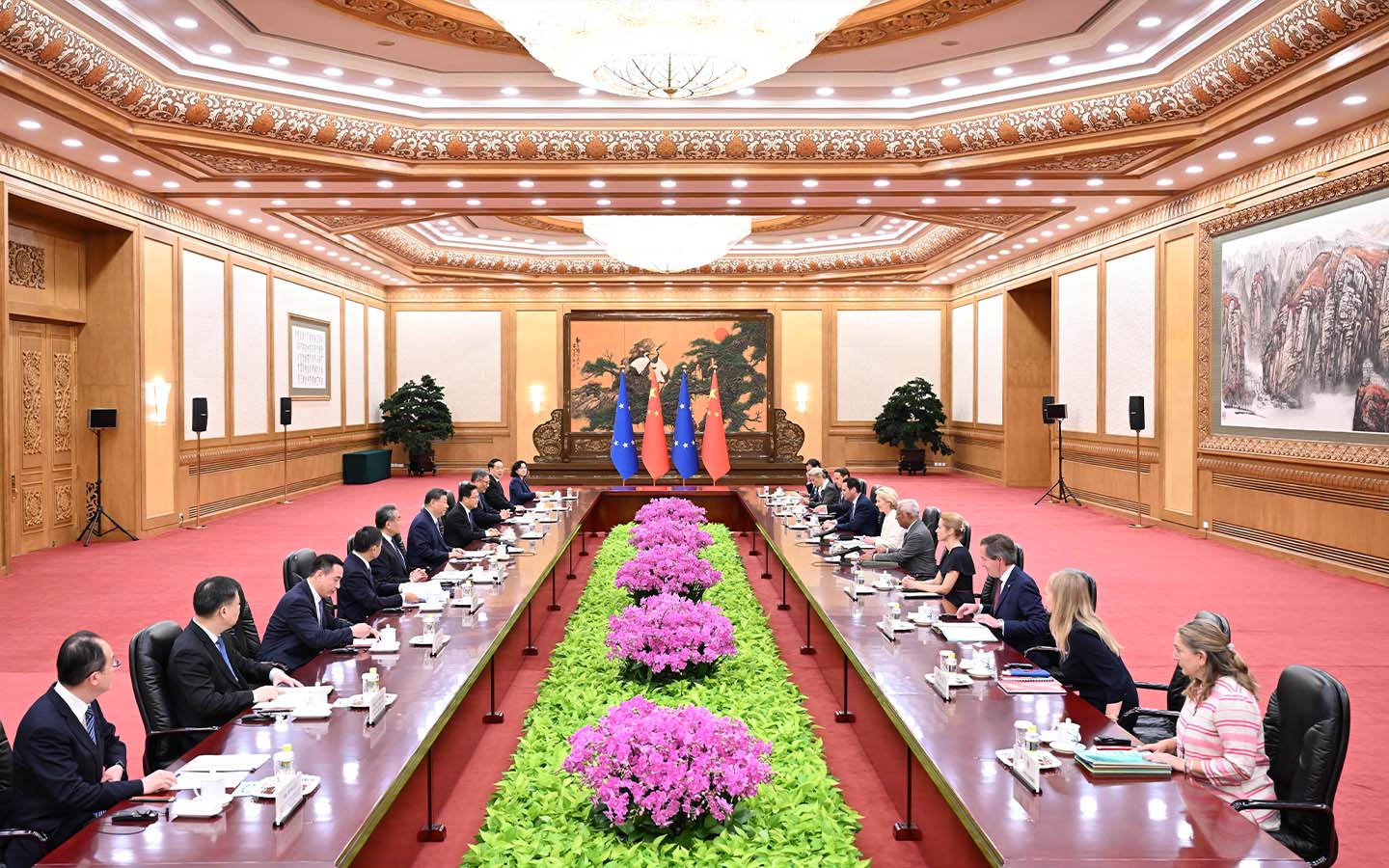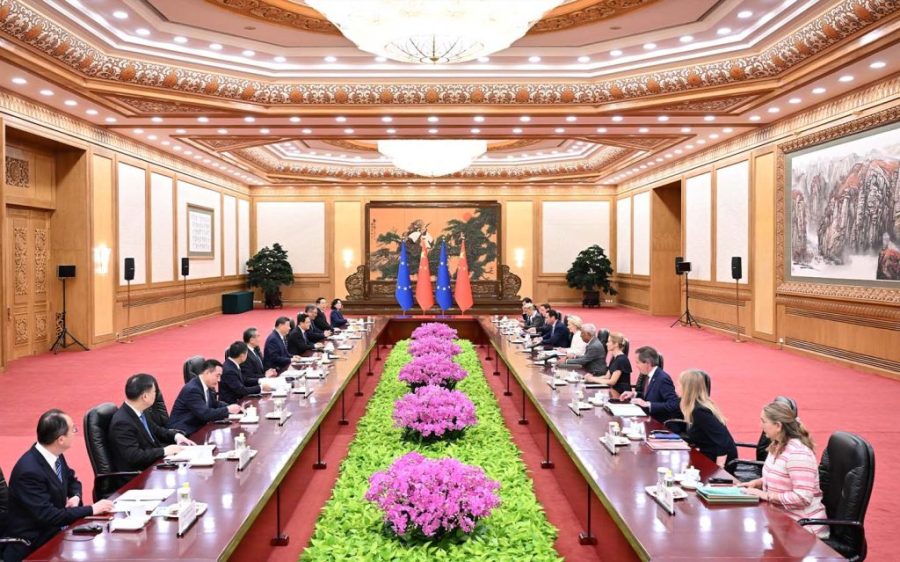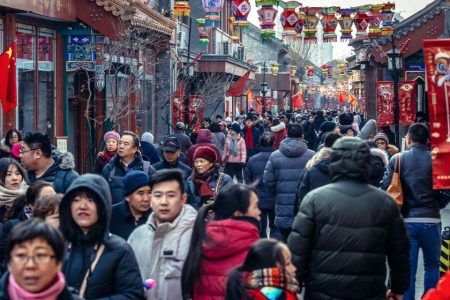Leaders from China and the European Union (EU) convened their 25th summit in Beijing on Thursday, marking the 50th anniversary of diplomatic ties while confronting widening divisions over trade, security and international norms, according to multiple media outlets.
President Xi Jinping met with European Council President António Costa and European Commission President Ursula von der Leyen at the Great Hall of the People in the morning, while talks with Premier Li Qiang followed in the afternoon. Both sides underscored the importance of continued engagement and cooperation on global challenges such as climate change, but the tone of the one-day summit reflected their increasingly strained relations
Von der Leyen described the EU-China trade relationship – which ran a US$350 billion deficit last year – as having reached “an inflection point.” EU leaders pressed for more balanced economic ties, raising concerns about limited market access in China, the country’s alleged manufacturing overcapacity, ongoing trade retaliations, and China’s policy on rare earth exports.
Xi, meanwhile, told Costa and von der Leyen that Europe’s current challenges “do not come from China” and that the bloc must keep its markets open to imports.
[See more: Greater Bay Area attracts European business investment]
While the president did not mention US President Trump and his reciprocal tariffs – which have had a major impact on global trade and relations this year – he did note that “the more severe and complex the international situation becomes, the more China and the EU need to strengthen communication, enhance mutual trust and deepen cooperation.”
Russia’s war in Ukraine also featured prominently. EU leaders reiterated calls for Beijing to use its influence to help end the conflict, warning against material support for Russia’s military industry – which Beijing denies giving. The EU also flagged concerns about Beijing ally North Korea’s reported role in supplying arms to Russia, citing risks to both European and East Asian security. Beijing has maintained an official stance of neutrality in the conflict.
Despite tensions, the two sides found common ground in climate leadership. They issued a joint statement that described the strengthening of China-EU cooperation on climate change as “of great and special significance to upholding multilateralism and advancing global climate governance.”
Pointedly, given the US’s re-withdrawl from the Paris Climate Agreement earlier this year, the statement noted that it was “crucial that all countries, notably the major economies [to] step up efforts to address climate change.”






